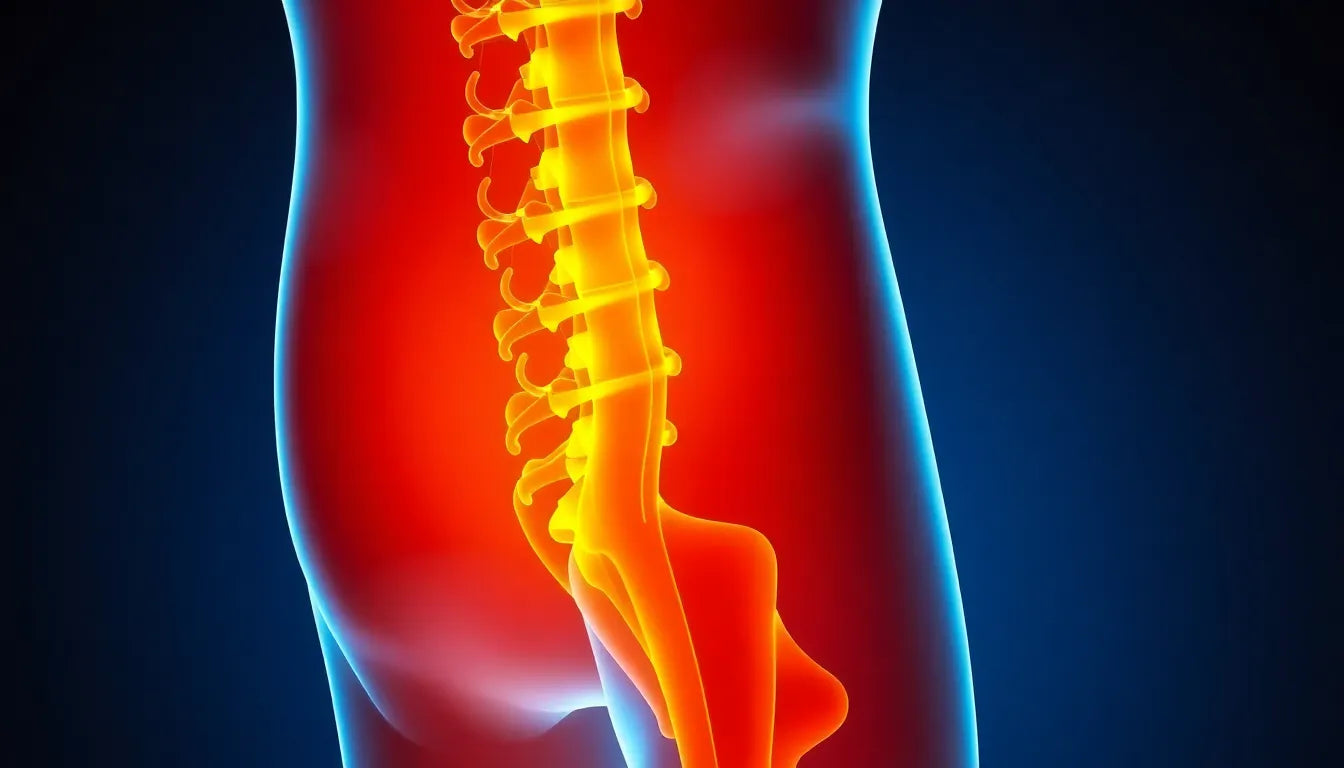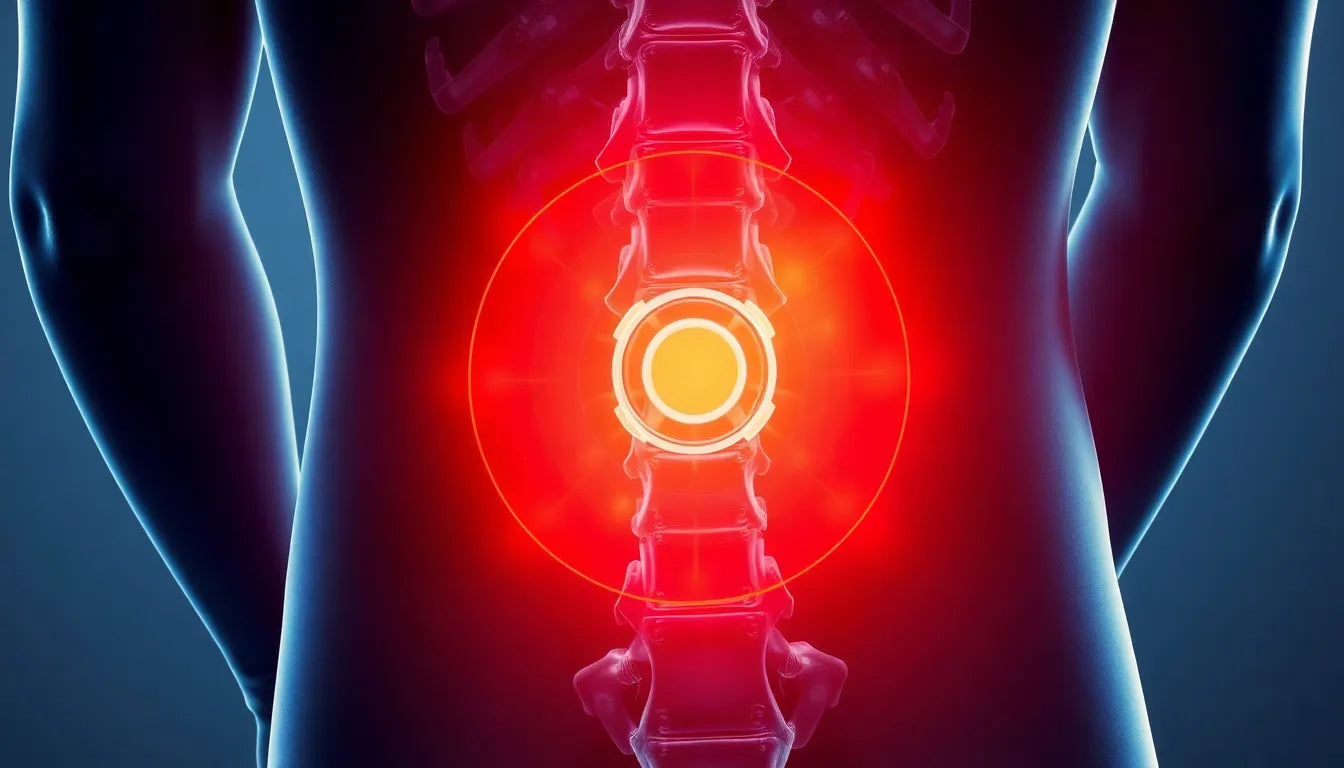Understanding how to prevent a herniated disc is crucial for anyone looking to maintain a healthy and active lifestyle. A herniated disc occurs when the soft center of a spinal disc pushes through a crack in the tougher exterior casing. This condition can lead to significant discomfort, affecting the spine's ability to function properly and causing pain, numbness, or weakness in an arm or leg. The symptoms can vary widely, but often include back pain, neck pain, and nerve-related issues that can severely impact daily activities and quality of life.
The importance of prevention
Preventing a herniated disc is essential not only to avoid the immediate discomfort and mobility issues but also to stave off chronic pain and the potential need for surgical intervention. A proactive approach to spine health can help maintain flexibility, strength, and overall well-being. By focusing on prevention, individuals can reduce the risk of developing this painful condition and ensure that their spine remains healthy and functional throughout their lives.
Fortunately, making smart lifestyle choices can significantly lower the risk of disc herniation. Incorporating regular exercise, maintaining good posture, and using proper lifting techniques are all practical steps that contribute to a healthier spine. These habits not only protect against herniated discs but also enhance overall physical health, making them an integral part of a balanced lifestyle.
Are you taking the right steps?
It's important to ask yourself: Are you taking the right steps to protect your spine from a herniated disc? By understanding the factors that contribute to disc health and implementing preventative measures, you can actively safeguard your spine. This proactive stance not only helps in preventing herniated discs but also promotes a pain-free and active life. In the following sections, we will delve deeper into the specific lifestyle choices and habits that can help you maintain a healthy spine and prevent disc-related issues.
Exercise and physical activity
One of the most effective ways to prevent a herniated disc is through regular exercise and physical activity. Strengthening the core and back muscles is essential, as these muscles provide crucial support to the spine, reducing the risk of disc herniation. Engaging in low-impact activities such as swimming, walking, and cycling can be highly beneficial. These exercises not only enhance cardiovascular health but also promote proper posture and spinal alignment.
Incorporating specific exercises into your daily routine can further bolster spinal health. Consider the following:
- Planks: These help in strengthening the core muscles, which are vital for supporting the spine.
- Gentle yoga poses: Yoga enhances flexibility and provides support to the spine, making it an excellent addition to any exercise regimen.
- Bridge exercises: These target the lower back muscles, helping to prevent strain and injury.
Posture and ergonomics
Maintaining good posture is another critical factor in preventing herniated discs. Whether you are sitting, standing, or walking, proper posture ensures that your spine is aligned correctly, minimizing uneven stress on the spinal discs. Here are some tips to improve your posture:
- Use ergonomic furniture that supports the natural curves of your spine.
- Adjust computer screens to eye level to avoid neck strain.
- Keep your feet flat on the floor when sitting to provide stability and support.
Visual aids, such as infographics or tables, can be helpful in demonstrating correct and incorrect postures. By implementing these ergonomic practices, you can significantly reduce the risk of disc herniation.
Proper lifting techniques
Improper lifting is a common cause of herniated discs, making it essential to learn and practice safe lifting techniques. Following these steps can help prevent excessive strain on the spine:
- Bend at the knees, not the waist, to engage your leg muscles rather than your back.
- Keep the load close to your body to maintain balance and reduce spinal stress.
- Avoid twisting motions while lifting, as this can increase the risk of disc injury.
To further illustrate these techniques, consider using diagrams or illustrations that depict the correct methods for lifting. By adhering to these guidelines, you can protect your spine from unnecessary strain and reduce the likelihood of a herniated disc.
By integrating these exercise, posture, and lifting strategies into your lifestyle, you can take proactive steps to maintain a healthy spine and prevent herniated discs. These smart lifestyle choices not only protect your spine but also contribute to overall physical well-being, ensuring a pain-free and active life.
Weight management and lifestyle changes
Maintaining a healthy weight is a vital component of preventing herniated discs. Excess weight can place additional stress on the spine, increasing the likelihood of disc problems. By adopting a balanced diet and regular exercise routine, you can achieve and maintain a weight that supports spinal health. Additionally, lifestyle modifications can play a significant role in protecting your spine. For instance, avoiding tobacco use is crucial, as smoking can diminish blood flow to the spine and accelerate disc degeneration.
Incorporating regular breaks from prolonged sitting is another important lifestyle change. Whether at work or home, standing up and moving around every 30 minutes can help reduce the pressure on spinal discs. Ergonomic aids, such as back supports or adjustable desks, can further enhance spine health by promoting proper posture and reducing strain during daily activities.
Avoiding high-risk activities
While exercise is beneficial for spine health, certain activities may pose a risk to individuals susceptible to herniated discs. High-impact exercises and movements that involve heavy lifting or twisting can exacerbate existing disc problems or increase the risk of injury. Deep squats, heavy deadlifts, and poorly executed cycling or hamstring stretches are examples of exercises to approach with caution.
Instead, consider safe alternatives or modifications that provide similar benefits without the added risk. For instance, opting for lighter weights with more repetitions or using resistance bands can help maintain strength without overloading the spine. Consulting with a fitness professional or physical therapist can also provide personalized guidance on suitable exercises for your needs.
Frequently asked questions
Can yoga help prevent herniated discs?
Yes, when practiced correctly, yoga can enhance flexibility and strengthen core muscles, both of which are beneficial for spine health and preventing herniated discs. Focus on gentle poses that promote alignment and avoid any movements that cause discomfort.
How often should I exercise to prevent disc problems?
Aim for at least 150 minutes of moderate aerobic activity each week, complemented by strength exercises twice a week. This balanced approach helps maintain overall fitness and supports spinal health.
Is sitting bad for my spine?
Prolonged sitting can increase pressure on spinal discs, potentially leading to discomfort or injury. It is important to take regular breaks, practice good posture, and ensure ergonomic seating to minimize these risks.
What should I do if I suspect a herniated disc?
If you suspect a herniated disc, consult a healthcare professional for an accurate diagnosis and appropriate treatment plan. Early intervention can help manage symptoms and prevent further complications.
By integrating these insights and actionable tips, you can take proactive steps to protect your spine health and prevent herniated discs through informed lifestyle choices. These strategies not only safeguard against disc problems but also contribute to overall physical well-being, ensuring a pain-free and active life.
Sources
- "How to Prevent a Herniated Disc." SpineGroup Beverly Hills.
- "Herniated Disc Prevention." SpineHealth.org.
- "Herniated Disk - Symptoms and Causes." Mayo Clinic.
- "Prevention of Herniated Disc." SapnaMed.
- "Preventing Herniated Discs." ProActive PT.
- "Tips to Prevent Herniated Discs." Samitivej Hospitals.
- "Herniated Disc Prevention and Care." Spine Institute of Florida.
























